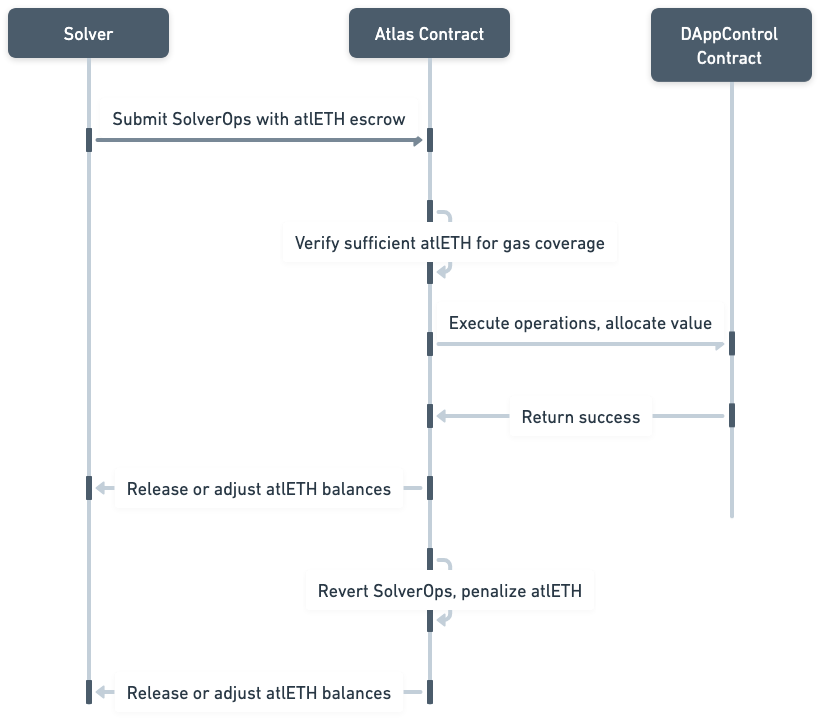Atlas Bonding Concept
atlETH Bonding Mechanism
Solvers are required to bond atlETH (ETH) from the EOA used to submit solverOperation to cover transaction costs before a solution can be executed.
Bond ETH
atlETH
atlETH serves as a wrapped representation of the blockchain's native token within Atlas. This mechanism enables solvers to escrow funds for their gas consumption, allowing them to pre-commit to covering the gas costs for their respective operations.
Using atlETH, Atlas facilitates the execution of transactions that include multiple third-party SolverOperations by bundlers and discourages solver spam by leveraging the DoS protection inherent in the underlying chain's gas costs.
Key Features and Mechanics
-
Balance Verification: The Operations Relay (OR) and/or Atlas SDK verify solvers'
atlETHbalances. -
Intrablock Participation Limit: At the smart contract level, Atlas restricts solvers from participating in more than one auction per block. This prevents double-counting of bonded
atlETHacross multiple applications and bundlers. -
Penalty for Multiple Executions: If solvers attempt a second operation in the same block, the operation will revert, but solvers will still incur charges for total gas costs.
-
Multiple Intrablock Auctions: To engage in multiple intrablock Atlas auctions, solvers must use separate EOAs and maintain bonded
atlETHbalances in each.
Solver Responsibilities
Known Bids Mode
In known bids mode, the solver must approve payment for the following:
- Gas costs for the transaction up to that point, excluding costs from other solvers' reverted operations.
- Remaining gas cost within the transaction up to the gas limit.
- Outstanding balance of any cross-operation flash loan initiated by hooks.
atlETH Escrow Process
- An escrow hold is placed on the solver's bonded
atlETHbalance for the total estimated amount owed. - The Atlas smart contract adjusts this escrow at the end of the transaction based on actual gas consumption.
- Solvers can estimate the gas limit and value of the Atlas transaction before signing their operation, allowing them to anticipate the required escrow amount.

Protection Against Malicious Actors
Solvers are not liable for gas costs if targeted by malicious originators, auctioneers, or bundlers. An altered UserOperation or CallChainHash will attribute any accrued solver gas costs to the bundler.
Disincentivizing Large Gas Limits
To discourage bundlers from setting excessively high gas limits (forcing solvers to maintain higher escrow balances), Atlas estimates any excess gas limit and charges the bundler for it during gas accounting.